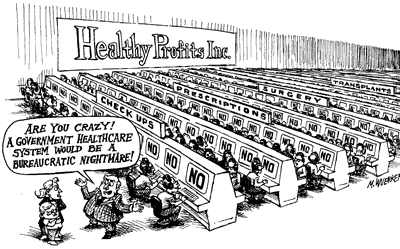- Community
-
Programs
- Schools
-
Careers
- RN Specialties
- Best RN Jobs and Salaries
- Aesthetic Nurse
- Nursing Informatics
- Nurse Case Manager
- NICU Nurse
- Forensic Nurse
- Labor and Delivery Nurse
- Psychiatric Nurse
- Pediatric Nurse
- Travel Nurse
- Telemetry Nurse
- Dermatology Nurse
- Nurse Practitioner
- Best NP Jobs and Salaries
- Family NP (FNP)
- Pediatric NP
- Neonatal NP
- Oncology NP
- Acute Care NP
- Aesthetic NP
- Women's Health NP
- Adult-Gerontology NP
- Orthopedic NP
- Emergency NP
- Psychiatric-Mental Health NP (PMHNP)
- APRN
- Nurse Educator
- Nurse Administrator
- Certified Nurse Midwife (CNM)
- Clinical Nurse Specialist (CNS)
- Certified Registered Nurse Anesthetist (CRNA)
- Resources
- Education


ShayRN
1,046 Posts
I was just looking at the "medicaid vent" post. I truely believe it is a crime that the wealthiest country in the world does not have a national health care program. There are too many working people out there with out health insurance. One surgery, even a "minor" appendectomy can wipe out a family living paycheck to paycheck. And really, how many of us aren't? Something needs to be done! I have very deep concerns about what I have seen with those that DO have insurance as well. We have all had "that patient" you know, that one that they won't let die. It disgusts me that they will keep taking off body parts, resectioning this, Cvvhd FOREVER. Seems to me that these are the ones that have insurance and the hospital wants to get every bleedin penny out of them. I don't think that age limits are appropriate either. I mean, I have had 52 year old open heart patients who NEVER should have went under the knife, then there were my 85 year olds who do REALLY well. So, for those of us in the trenches everyday...
HOW WOULD YOU FIX HEALTHCARE IN AMERICA IF YOU WERE WRITING THE POLICIES?
HOW WOULD YOU FINANCE YOUR AGENDA?